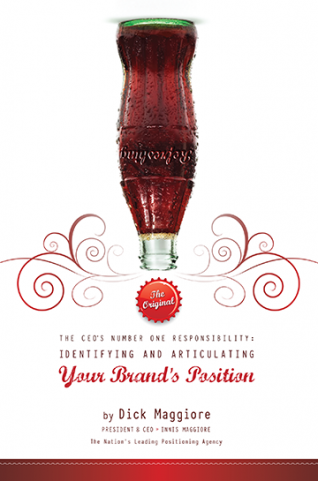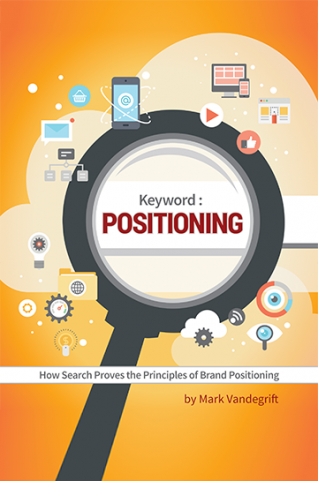The end of another year is a good time to reflect and work on your business rather than in your business.
Your business deserves the attention and a good place to start is inside your company.
There are two kinds of companies: product-focused and customer-focused. Which are you?
Your brand DNA determines your dominance. There's no middle ground. Your company's mind-set is one way or the other – product- or customer-focused.
Understanding your company's focus serves as a guide to finding your company's “who” (its authentic archetype), its “why” (why it exists beyond making money), its strategic competitive advantage (a genuine differentiated position), and its brand personality and execution (how it's expressed in words, pictures and sounds). It also is a guide for the type of people you hire, their passion, how you train your people, how you incent them, your operational alignment, and just about everything else.
Everyone and everything needs to be marching from the same drumbeat. Fuzziness is deadly. The answer emanates from your company's authentic DNA.
Your brand DNA: product- or customer-focused
Consider that customer-oriented companies spend a lot of time training their people on customer service. Zappos spends close to two months before letting new employees loose on its customers. If you order shoes from Zappos and don't like them, you can send them back and Zappos pays the freight.
Zappos CEO Tony Hsieh said, “Customer service shouldn't be a department; it should be the entire company.”
Nordstrom is all about customer service. Robert Spector, in his book The Nordstrom Way: The Inside Story of America's #1 Customer Service Company, tells the story about a customer who returned four automobile tires because he wasn't satisfied. The Nordstrom clerk took the tires and gave him his money back. The twist on this story is that Nordstrom doesn't sell tires.
Disney emphasizes family fun happy entertainment. Bill Capadagli and Lynn Jackson wrote The Disney Way, noting that every aspect of Disney's management is built around Walt Disney's dream of the ultimate magical customer experience.
There are other amusement parks with faster rides. There are other entertainment venues with better food. Disney understands its DNA and is willing to sacrifice in some areas to focus on its magical customer experience.
Companies that are more about their customers' experience hire people who genuinely like people. They are companies that have an outside-in perspective. They are companies that have customer-centric metrics such as retention, usage and satisfaction.
If this description doesn't resonate with you, your company is more likely product-oriented. There are just as many successful product-focused companies as customer-focused companies.
Product-focused companies are all about building the best product or service in its industry.
McDonald's, Walmart and Microsoft are product-oriented companies. They all want to sell you as many products as possible. They are constantly coming up with ways to innovate.
McDonald's adjusts its menu frequently. Walmart's supply chain is incomparable and one can hardly keep up with Microsoft's latest software versions. Product-oriented companies can be in almost any industry.
Product-oriented companies are characterized by inside-out thinking. They measure things like product performance, product development and sales leadership. This kind of company is more likely to hire engineer types – those who prefer working with things more than with people.
Brand DNA: no middle ground
Remember, there is no middle ground. Your company is either customer-focused or product-focused. Knowing which you are sets the stage for how to grow your business.
Nike makes one heck of a shoe. That makes many think it is a product-focused company. Nope. Nike is a customer-focused company. It built its business around the idea that famous athletes prefer to use Nike sneakers.
Nike serves a customer segment—those who aspire to perform like athletes. Most of Nike's customers are not athletes, but they have aspirations.
Product-oriented companies grow by continuous product (or service) innovation. New models. More features. Apple founder Steve Jobs wasn't fond of customer research. “It's really hard to design products by focus groups. A lot of times, people don't know what they want until you show it to them,” Jobs said
This reminds us of another rare man who changed our world: Henry Ford said, “If I had asked people what they wanted, they would have said faster horses.”
It can be fun to figure out your brand DNA. Focus on your strengths. Do what you're best at. Alignment is everything.



